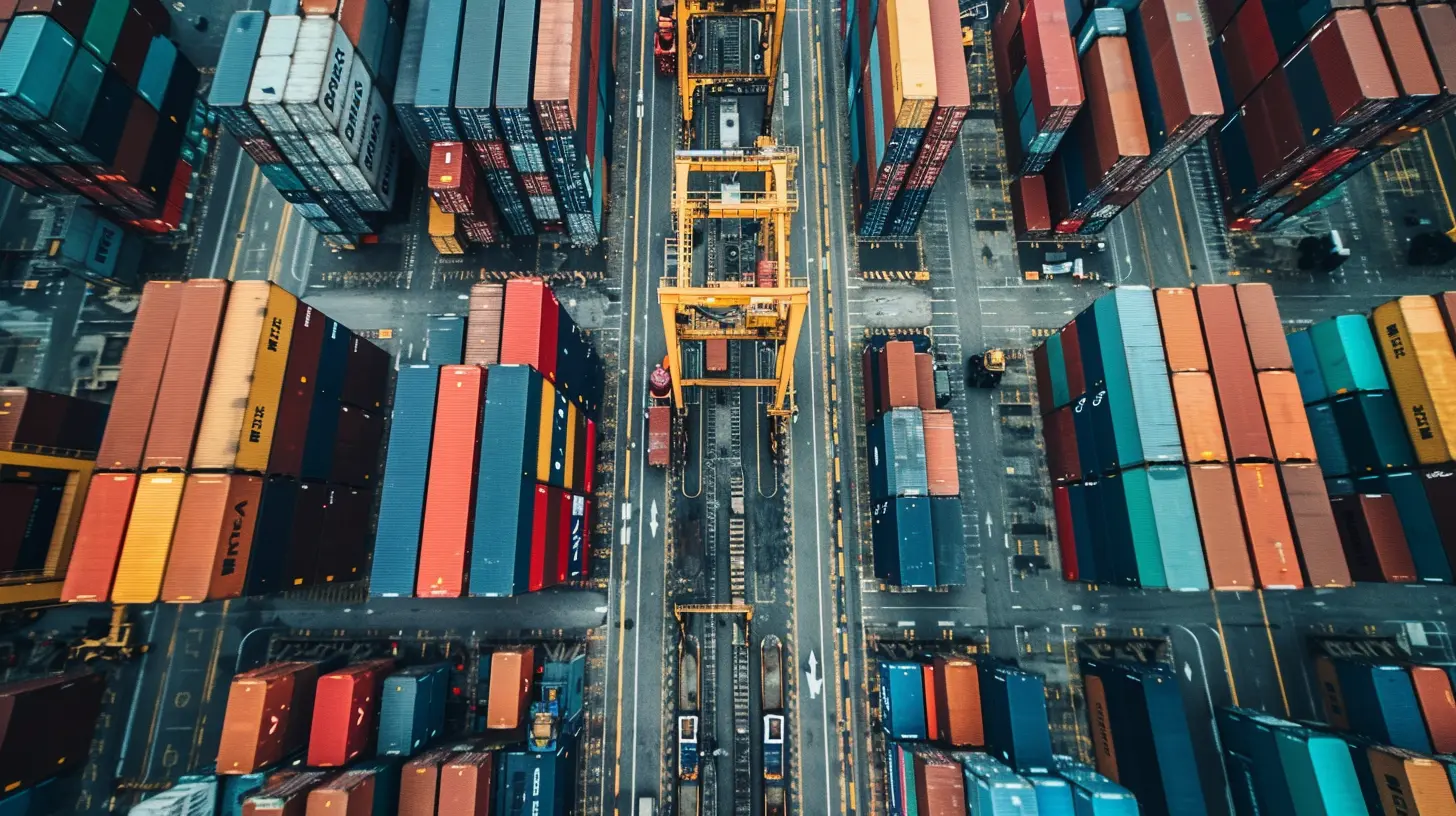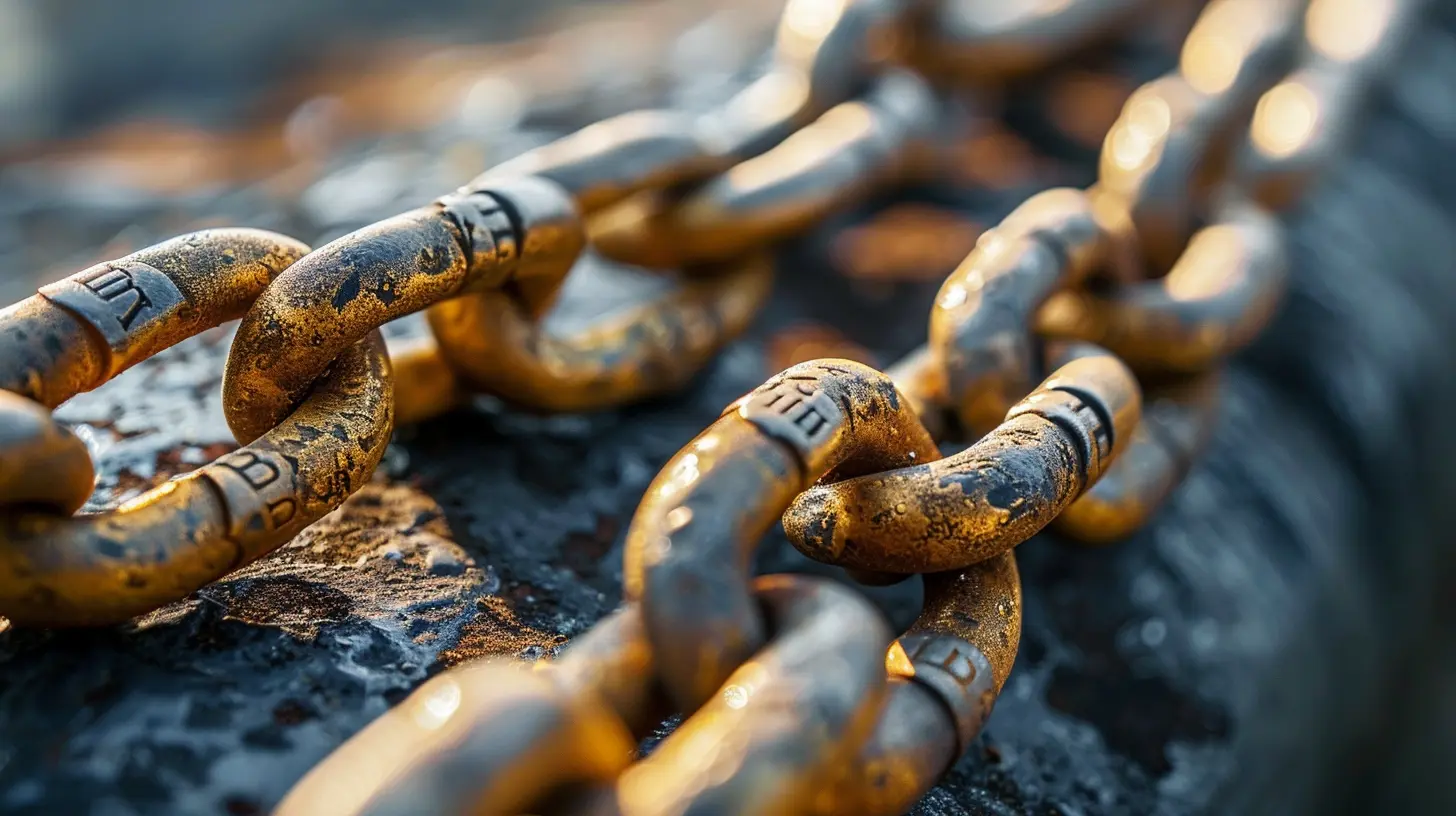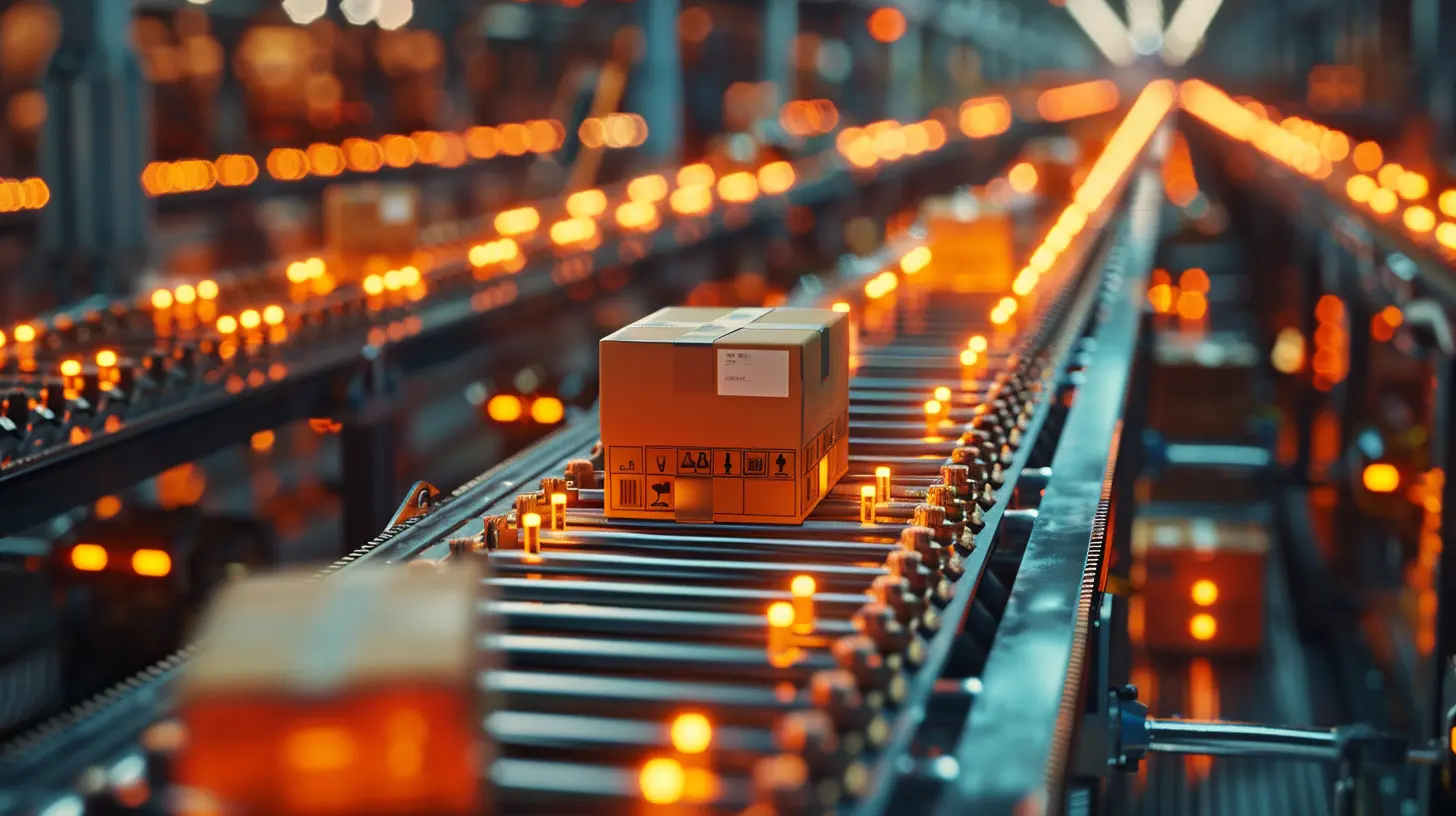Blockchain’s Role in Ensuring Ethical Supply Chains
19 December 2024
In today’s fast-paced, global economy, supply chains stretch across continents and involve countless stakeholders. From raw material extraction to the final consumer product, each link in the chain must function efficiently and ethically. However, ensuring ethical practices throughout the supply chain is easier said than done. From child labor to environmental degradation, many unethical practices often go unnoticed due to a lack of transparency.
But what if I told you there’s a technology that could change all of this? Enter blockchain—a technology that most of us associate with cryptocurrencies like Bitcoin. But blockchain is so much more than just a digital ledger for currencies. It holds the potential to revolutionize industries, especially when it comes to ensuring ethical supply chains.
What is Blockchain?
Before we dive into blockchain’s role in ethical supply chains, let’s clarify what blockchain actually is. At its core, blockchain is a decentralized and distributed digital ledger where transactions are recorded in a way that is secure, transparent, and immutable. In simple terms, it’s like a digital notebook that everyone can see but no one can alter once something is written in it.Blockchain operates on a peer-to-peer network, meaning that no single entity controls the entire ledger. Instead, all participants in the network have access to a copy of the ledger. This decentralized nature makes blockchain incredibly secure and resistant to fraud. If someone tries to tamper with a transaction, the entire network would recognize the inconsistency.
Now, how does this technology fit into the world of supply chains?
The Importance of Ethical Supply Chains
Let’s face it: the global supply chain system is complex, and with complexity comes a lack of transparency. You’ve probably heard stories of major corporations being caught up in scandals involving child labor, exploitation, or unsustainable practices. These are the kinds of problems that ethical supply chains aim to prevent.An ethical supply chain ensures that every process, from sourcing materials to manufacturing and delivery, adheres to fair labor practices, environmental sustainability, and social responsibility. It’s not just about avoiding scandals; it’s about doing the right thing for people and the planet. However, ensuring that each step of the supply chain is ethical is a monumental task, especially when companies rely on multiple suppliers scattered across the globe.
This is where blockchain comes in.
How Blockchain Ensures Transparency
Immutable Records
One of the most significant advantages of blockchain is that once a transaction is recorded, it cannot be altered. This means that every action, whether it's the extraction of raw materials or the shipping of a finished product, is permanently recorded and visible to all participants in the network. This level of transparency makes it much harder for companies to hide unethical practices.For example, imagine a smartphone manufacturer wants to ensure that the cobalt used in its batteries isn't coming from child labor mines in the Congo. With blockchain, every step of the cobalt's journey—where it was mined, who handled it, and how it was transported—can be tracked on the blockchain. If any unethical practices are detected, the company can immediately take action to correct the issue.
Real-Time Monitoring
Blockchain allows for real-time monitoring of supply chains. Rather than waiting for audits or reports, companies can see what’s happening in real-time. This is especially important for industries like food and fashion, where working conditions and environmental practices can change rapidly.With blockchain, a coffee company can ensure that the beans it’s sourcing are truly fair trade. If a farm starts to engage in unethical practices, the company will be able to spot this instantly and make more informed decisions. This kind of transparency empowers companies to maintain ethical standards at all times.
Reducing Fraud and Counterfeiting
Verifying Authenticity
Counterfeiting is a major issue for many industries, and it’s not just about fake handbags or knock-off sneakers. In sectors like pharmaceuticals, counterfeit products can have life-or-death consequences. Blockchain can help reduce fraud by providing a verifiable and immutable record of a product's entire lifecycle.For example, a pharmaceutical company can use blockchain to track the production, packaging, and distribution of its drugs. This ensures that what ends up on pharmacy shelves is exactly what the company produced, and not a dangerous counterfeit.
Smart Contracts and Compliance
Smart contracts are another key feature of blockchain technology. These are self-executing contracts where the terms are written directly into lines of code. They can automatically enforce ethical standards by triggering actions when certain conditions are met—or not met.For instance, imagine a clothing manufacturer works with a factory that promises to pay its workers above the minimum wage. With a smart contract, the payment to the factory could be automatically released only if the factory proves it has adhered to these wage standards. If the factory fails to comply, the contract won’t execute, and the factory won't get paid.
This level of automation and enforcement can dramatically reduce the risk of human error or intentional fraud, ensuring that ethical standards are met without the need for constant oversight.
Enhancing Sustainability
Tracking Environmental Impact
In addition to ensuring fair labor practices, blockchain can also be used to track a company’s environmental impact. Many companies today, especially in the tech and fashion industries, are under increasing pressure to reduce their carbon footprint and adopt sustainable practices.Blockchain can track the resources used in manufacturing, such as water and energy consumption, and provide detailed insights into a product’s environmental impact. For example, a clothing company could use blockchain to calculate the total carbon emissions involved in producing a single t-shirt, from cotton farming to factory production to shipping.
By providing this level of transparency, blockchain allows companies to take meaningful steps toward sustainability and helps consumers make more informed choices about the products they buy.
Incentivizing Ethical Practices
Blockchain’s transparency can also incentivize ethical practices across the board. By rewarding suppliers and manufacturers who adhere to ethical and sustainable practices, companies can create a system where doing the right thing isn’t just good for the planet but also good for business.For instance, blockchain can be used to create a reward system, where suppliers that meet certain ethical standards are given preferential treatment or financial incentives. This not only encourages suppliers to improve their practices but also creates a more competitive marketplace where ethics become a selling point, not just an afterthought.
Challenges in Implementing Blockchain for Supply Chains
Okay, blockchain sounds pretty amazing, right? But like any technology, it’s not without its challenges.Scalability Issues
One of the biggest challenges with blockchain is scalability. The more transactions that occur on a blockchain, the larger the ledger becomes. This can slow down the network and make it difficult for companies to process large volumes of data quickly.Adoption and Integration
Another challenge is getting everyone in the supply chain on board. Blockchain’s effectiveness relies on all participants using the same system. If even one link in the chain refuses to adopt the technology, the transparency and accountability of the entire supply chain can be compromised.Additionally, integrating blockchain into existing supply chain management systems can be costly and time-consuming. Many companies may be reluctant to make the switch, especially if they don’t fully understand the benefits.
Regulatory Hurdles
Finally, there are regulatory hurdles to consider. Blockchain operates across borders, which can create legal and compliance issues, especially for companies that operate in multiple countries with different regulations.The Future of Ethical Supply Chains with Blockchain
Despite these challenges, the potential benefits of using blockchain for ethical supply chains far outweigh the drawbacks. As blockchain technology continues to evolve and improve, we’re likely to see even more companies adopt it as a tool to ensure transparency, reduce fraud, and promote sustainability.Imagine a world where every product you buy comes with a digital certificate of authenticity, showing exactly where it was made, how it was produced, and whether it meets ethical standards. With blockchain, this isn’t just a pipe dream—it’s a very real possibility.
Consumers are becoming more socially conscious, and they want to know that the products they’re buying are ethically sourced. Blockchain provides the transparency and accountability needed to build trust between companies and consumers. And in a world where reputation is everything, that trust is invaluable.
Conclusion
Blockchain has the potential to revolutionize supply chains by ensuring transparency, reducing fraud, and promoting ethical practices. While there are challenges to overcome, the benefits for companies, consumers, and the environment are clear. As more industries begin to explore the possibilities of blockchain, it’s only a matter of time before ethical supply chains become the new standard.In a world where ethics and transparency are becoming increasingly important, blockchain could be the key to unlocking a more responsible and sustainable future for global supply chains.
all images in this post were generated using AI tools
Category:
Blockchain TechnologyAuthor:

Michael Robinson
Discussion
rate this article
21 comments
Pearl Bowers
Blockchain technology offers transparency and traceability, empowering consumers to verify product origins and ethical practices. This fosters accountability among companies, driving sustainable practices and promoting trust in supply chains.
February 10, 2025 at 4:04 AM

Michael Robinson
Thank you for your insightful comment! Indeed, blockchain's capabilities in transparency and traceability are crucial for enhancing accountability and fostering sustainable practices in supply chains.
Iliana Jordan
Blockchain isn't just a buzzword; it's a revolutionary force for ethical supply chains. By enhancing transparency and accountability, it empowers consumers and companies alike to demand integrity in every product's journey. Embrace the change!
February 1, 2025 at 9:23 PM

Michael Robinson
Thank you for your insightful comment! Indeed, blockchain's ability to enhance transparency and accountability is crucial for fostering integrity in supply chains. Embracing this technology can drive meaningful change.
Jack Harmon
Blockchain in supply chains: finally a tech solution that’s more trustworthy than your friend who 'totally' returned your favorite sweater... but still needs to work on its fashion sense!
January 28, 2025 at 1:13 PM

Michael Robinson
Thanks for the humorous take! Blockchain does offer greater transparency and trust in supply chains, but like any technology, it must continue to evolve for optimal impact.
Honor Wolf
Blockchain fosters transparency and trust in supply chains, empowering consumers to make informed choices. By tracing origins and verifying practices, it transforms ethical considerations from abstract ideals into tangible, actionable realities.
January 23, 2025 at 9:34 PM

Michael Robinson
Thank you for your insightful comment! Indeed, blockchain's ability to enhance transparency and traceability is key to transforming ethical supply chains into actionable practices.
Briar Watson
Blockchain: The ethical compass for commerce!
January 21, 2025 at 3:35 AM

Michael Robinson
Thank you for your comment! Absolutely, blockchain can serve as a powerful tool for enhancing transparency and accountability in supply chains, promoting ethical practices in commerce.
Zeal Miller
Transparency enhances trust universally.
January 18, 2025 at 3:56 AM

Michael Robinson
Absolutely! Transparency is key to building trust in supply chains, and blockchain technology provides a reliable way to ensure that information is accessible and verifiable.
Renata Blevins
This article beautifully highlights the transformative power of blockchain in promoting ethical supply chains. It's inspiring to see technology used for transparency and accountability, ensuring that our choices positively impact communities and the environment. Thank you for this insightful read!
January 12, 2025 at 7:40 PM

Michael Robinson
Thank you for your kind words! I'm glad you found the article inspiring and highlighting the importance of blockchain in ethical supply chains. Your support means a lot!
Fletcher Ellison
Blockchain technology is transforming supply chains by enhancing transparency and traceability. By providing an immutable ledger, it helps verify sourcing, ensure ethical practices, and hold companies accountable. As businesses increasingly prioritize sustainability, blockchain could be key in fostering trust and integrity throughout the supply chain ecosystem.
January 6, 2025 at 3:39 AM

Michael Robinson
Thank you for highlighting the transformative role of blockchain in supply chains. Its ability to enhance transparency and traceability is indeed crucial for promoting ethical practices and sustainability in the industry.
Karly Vasquez
Great article! It's inspiring to see how blockchain technology can enhance transparency and accountability in supply chains, fostering ethical practices and empowering consumers to make informed choices. Keep up the good work!
December 31, 2024 at 7:55 PM

Michael Robinson
Thank you! I'm glad you found the article inspiring. Excited about the potential of blockchain to drive ethical practices in supply chains!
Elise Gomez
Blockchain technology is revolutionizing supply chains by enhancing transparency and accountability. By leveraging its immutable ledger, businesses can ensure ethical sourcing, empower local communities, and foster trust. Embrace this digital transformation to create a sustainable future for all. The future is ethical!
December 28, 2024 at 12:52 PM

Michael Robinson
Thank you for your insightful comment! I completely agree—blockchain's potential to enhance transparency and accountability is crucial for fostering ethical supply chains. Let's embrace this change for a sustainable future!
Pilar Clarke
This article effectively highlights how blockchain technology enhances transparency and accountability in supply chains. By enabling real-time tracking and verification, it empowers consumers and businesses to make ethical and informed choices. Great insights!
December 27, 2024 at 9:37 PM

Michael Robinson
Thank you for your positive feedback! I'm glad you found the insights on blockchain's impact on transparency and accountability in supply chains valuable.
Blake Jennings
Blockchain has the potential to revolutionize supply chains by enhancing transparency and traceability. However, its effectiveness relies on widespread adoption and collaboration among stakeholders to truly ensure ethical practices from production to consumption.
December 27, 2024 at 11:54 AM

Michael Robinson
Thank you for your insightful comment! I completely agree that widespread adoption and collaboration are crucial for blockchain to realize its full potential in promoting ethical supply chains.
Runeveil McGinnis
This article effectively highlights how blockchain technology can enhance transparency and accountability in supply chains. By providing immutable records and real-time traceability, blockchain empowers consumers and businesses alike to make ethically informed decisions, fostering trust and sustainability across various industries. A crucial read for future-focused stakeholders!
December 26, 2024 at 5:40 AM

Michael Robinson
Thank you for your insightful comment! I'm glad you found the article highlights the importance of blockchain in promoting transparency and accountability in supply chains.
Otto Mitchell
Blockchain technology is paving the way for more ethical supply chains, empowering transparency and accountability. By harnessing its potential, we can ensure that our products are sourced responsibly, fostering trust between consumers and companies. Together, let’s embrace innovation to create a more sustainable and fair future for all!
December 25, 2024 at 1:44 PM

Michael Robinson
Thank you for your insightful comment! I completely agree that blockchain's ability to enhance transparency and accountability is crucial for fostering ethical supply chains and building trust among stakeholders. Embracing this technology is key to a sustainable future.
Holden McQuillan
Blockchain: making sure your avocado toast is as ethical as your brunch conversation!" 🥑💻
December 25, 2024 at 5:07 AM

Michael Robinson
Absolutely! Blockchain enhances transparency in supply chains, ensuring that products like avocado toast are sourced ethically and sustainably. It's the tech behind the talk! 🥑💚
Lydia Jackson
Great insights! Blockchain truly empowers transparency and accountability in ethical supply chains.
December 24, 2024 at 9:30 PM

Michael Robinson
Thank you! I'm glad you found the insights valuable. Blockchain indeed plays a crucial role in enhancing transparency and accountability.
Blaine Mullen
Blockchain: because who wouldn’t want their avocado toast’s journey documented down to the last artisanal farmer? Finally, we can sleep easy knowing our ethically-sourced quinoa is as transparent as our tech dreams!" 🥑✨
December 24, 2024 at 4:10 AM

Michael Robinson
Blockchain enhances transparency in supply chains, allowing consumers to trace the origins of their food, like avocado toast and quinoa, ensuring ethical sourcing and empowering informed choices.
Paula McGuffey
Exciting potential! How might it evolve?
December 23, 2024 at 8:44 PM

Michael Robinson
Thank you! As blockchain technology matures, we can expect enhanced transparency, real-time tracking, and greater collaboration among stakeholders, which will further strengthen ethical practices in supply chains.
Meredith Lopez
This article highlights how blockchain technology can enhance transparency and traceability in supply chains, ensuring ethical practices and promoting trust among consumers and businesses alike.
December 23, 2024 at 1:33 PM

Michael Robinson
Thank you for your insightful comment! I'm glad you found the article valuable in showcasing blockchain's potential to improve transparency and trust in supply chains.
Christina Hamilton
This article sheds light on a crucial intersection of technology and ethics. It’s inspiring to see how blockchain can enhance transparency and accountability in supply chains, ultimately fostering a more responsible and sustainable approach. Thank you for discussing such an important issue that affects us all!
December 22, 2024 at 1:00 PM

Michael Robinson
Thank you for your thoughtful comment! I'm glad you found the article inspiring and relevant to the important topic of ethical supply chains. Your engagement is much appreciated!
Candace McGonagle
Great article! It's encouraging to see how blockchain can promote transparency and ethics in supply chains. A vital topic!
December 19, 2024 at 12:02 PM

Michael Robinson
Thank you! I’m glad you found the article insightful. Transparency in supply chains is indeed crucial for ethical practices.
MORE POSTS

Best Tools for Creating Eye-Catching Social Media Content

From Sci-Fi to Reality: The Evolution of VR Storytelling

The Power of Networking in Building a Successful Tech Startup

Robot Pets: The Future of Companionship?

Stay Cool: Portable Fans and Air Conditioners for Travelers

The Role of Green Technology in Fighting Climate Change

Streamlining Your Video Production with These Essential Tools

How Game Developers Influence the Esports Meta

Elevating Your Workflow: The Best New Tools for Digital Creators

Understanding the Dark Web: What You Should Know About Hidden Threats

Why Collaboration Tools Are Essential for Tech Startup Success

Sustainable Gadgets: The Rise of Eco-Friendly Tech

How to Leverage Data Analytics for Tech Startup Growth